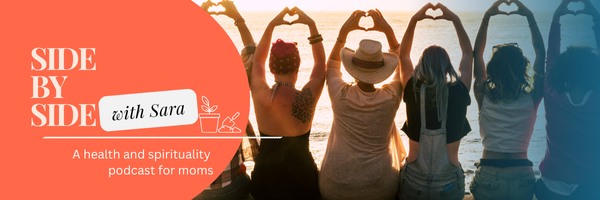Let's talk about hoping. You hope it doesn't snow. You hope your kids go to sleep without a fight. You hope that there isn't traffic. You hope you don't get a call from the school nurse.
Hope is a funny type of word. The definition describes it as a feeling of confidence that something is going to happen, a feeling of trust. But if we look at the examples above they feel like they are filled with fear and uncertainty.
If there were one of those old-timey balancing scales and we say 'I hope it doesn't snow.', there is a lot on the one side of the scale that is filled with the fear of it actually snowing, and possibly the fear side is heavier than the side of hoping it won't snow.
When you say, 'I hope...', where do you feel it in your body? Do you start to get tight and clenched? Or is your mind open and, well, hopeful - full of hope, light, and positive things will go the way you want it?
These somatic or kinetic practices, feeling the words and thoughts in your body can help direct you toward your actual mindset. You may be saying positive things, 'I hope...', but the reaction to those words and thoughts can be much more negative and stress-inducing than relieving.
If this is the case for you, like when your 2-year-old was kind of snotty when you dropped them off at daycare and you really hope that the daycare teacher doesn't call you to pick them up before your important meeting. You pray and hope on your whole drive to work that you don't get that call and you're feeling that gut jaw clenching all day, that is your signal to adjust the thoughts and the direction.
Changing the words and thoughts we think alters how our body feels and responds to the world around us.
When you drop that kiddo off, instead of thinking 'Oh I hope you have a good day and I don't get the call...', why not adjust it to something actually full of confidence, 'You ARE going to have a great day and have so much fun, I'll see you at pick up!'. Can you feel the difference in those words? 'I hope I can make it through the meeting before I get a call from daycare.' vs 'I am excited to do this presentation, I am prepared for it, it's going to be great.'
Very different feelings in our bodies when we say or think those words. If you are full of trepidatious hope you may be looking at your phone all morning, distracted, feeling nauseated because your stomach is in knots, you don't eat, you drink too much caffeine and you get through the meeting all sweaty and slightly scatterbrained. But if you are excited about that meeting, and relaxed, you go through your typical motions of the day eating, drinking, breathing, and you get through the meeting with more poise and ease.
There is nothing wrong with saying that you HOPE something happens, your brain could read that as very confident and certain and you feel your heart open without the background noise of fear and doubt. However, if you do have that negative feeling when you think and say certain phrases, that is your reminder to flip it and make sure your words, the feeling throughout your mind and body, match the outcome you desire.

